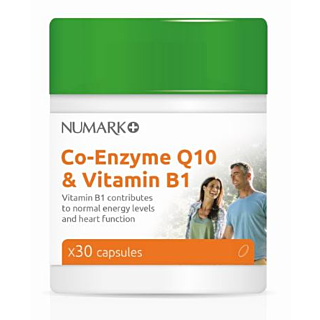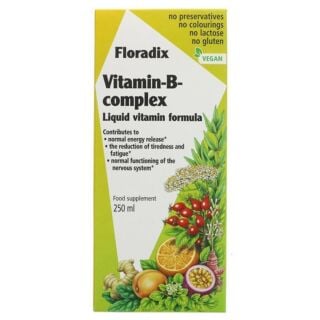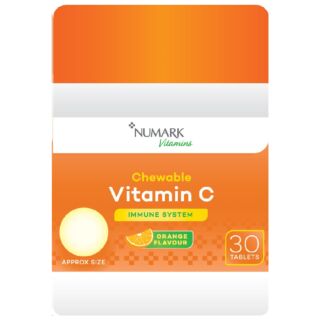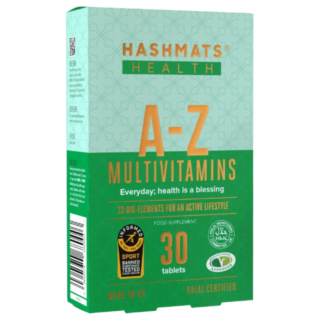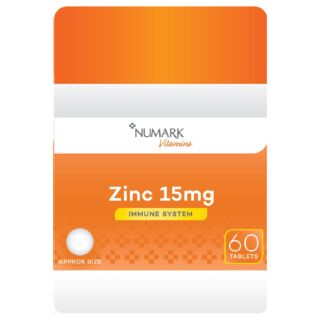The 5 best vitamins for healthy hair, skin & nails

Are you battling with dry and brittle hair, skin and nails? You’re not alone! Many people struggle to keep these looking and feeling healthy from time to time. Our diet and lifestyle can impact the health of our hair, skin and nails and it’s important to nourish our bodies to keep them strong and glossy.
With this in mind, let’s take a look at the 5 best vitamins that can give your hair, skin and nails a health boost!
Why are vitamins important for hair, skin and nails?
Your hair, skin and nails can show the first signs of vitamin deficiencies. Hair and nails can become brittle from a deficiency in biotin. Although rare, it can happen during pregnancy or if you’re a heavy smoker or drinker. Biotin metabolizes food into energy and is a key vitamin in strengthening hair and nails.
Dandruff and itching of the scalp may also be a sign that you’re lacking in zinc and vitamin B, and if you’ve noticed white marks on your nails you may have a calcium deficiency.
As you can see, without sufficient levels of essential vitamins and minerals, your hair, skin and nails can suffer.
Here are some of the best vitamins for healthy hair, skin and nail growth.
Biotin
Biotin is one of the B vitamins, more specifically B7. It can be found in many of the foods that we eat such as egg yolk, bananas and milk, so while a deficiency in biotin is rare, some of the symptoms include hair loss, skin rash, and brittle nails. We need biotin to produce an essential protein for hair and nails known as keratin. You may see many hair products that claim to contain keratin.
If your doctor diagnoses a biotin deficiency, a supplement will be recommended to be taken for a number of months until your levels are sufficient.
Recommended dose: no more than 0.9mg per day, as there is not enough research on the effects of taking too much biotin. It’s also likely that you’re getting enough biotin from your diet.
Vitamin C

Also known as ascorbic acid, vitamin C is not only a great antioxidant and an immune booster, it has incredible benefits for the skin.
One of the roles of vitamin C involves the formation of collagen, a key protein found in the skin that keeps it strong, firm and youthful. Collagen can help reduce the appearance of wrinkles, strengthen scar tissue, and improve the skin's elasticity. As we age, we lose our natural collagen, but a diet high in vitamin C can help prevent this loss and restore the health and vitality of the skin.
We get most of our vitamin C from our diet by eating lots of fruit and vegetables, particularly citrus fruits. As long as you have a well-balanced diet, you don’t necessarily need to take a vitamin C supplement, but if you’re lacking in this vitamin, it may be worth taking a daily dose. No more than 1,000mg of vitamin C a day is enough and is unlikely to cause any harm.
You can also take collagen supplements, but it is best to help your body produce collagen naturally by eating foods rich in amino acids and vitamin C. There is little evidence that skincare products containing collagen actually work.
Recommended dose: healthy adults between the ages of 19-64 need 40mg per day.
Vitamin E
Amongst other benefits, the antioxidant effects of vitamin E can help to protect hair and skin against oxidative damage and free radicals, and help improve conditions such as eczema on the skin and scalp. Maintaining the health of your scalp will improve the look and condition of your hair resulting in shinier, stronger locks and increased hair growth.
Vitamin E isn’t stored in the body, so you need to get it from the food you eat such as seeds, nuts and vegetables, or supplements.
Recommended dose: men require 4mg of vitamin E per day, and women require 3mg.
Vitamin A
If you’re suffering from dry and brittle hair, skin and nails, vitamin A supports healthy and balanced sebum production to prevent severe dryness which can cause infections.
You may have heard the term ‘retinol’ as it’s often used in many skincare products because of its exfoliating and plumping effects on the skin. Retinol is actually derived from vitamin A and helps to improve the texture of the skin and reduce the appearance of fine lines and wrinkles.
Also, its immune-boosting benefits no doubt have a positive effect on the health of hair, skin and nails.
Recommended dose: adults aged 19-64 need 700 µg per day (men) or 600 µg per day (women)
Zinc
Zinc is important for cell production and wound healing, and like a biotin deficiency, low levels of zinc can result in symptoms of hair loss and brittle nails.
Those white marks that can appear on your nails from time to time are likely due to a calcium or zinc deficiency. Zinc supports the regular production of cells and nail growth, so a lack of zinc can cause several problems with nails including discolouration, inflammation around the cuticle, and weak nails that break easily.
Red meat, poultry and fish are all proteins that contain a high amount of zinc. Vitamin supplements are suitable for those who have a deficiency - you may be able to tell by your nails if you’re lacking in zinc.
Recommended dose: 9.5mg of zinc is recommended per day for men, and 7mg for women.
Do vitamin supplements for hair, skin and nails work?
If you’re vitamin deficient, your hair, skin and nails will certainly feel the effects. Whether you’re deficient in vitamins that directly affect these parts of the body, such as biotin, or you’re deficient in a vitamin that is essential for immunity (vitamin D or vitamin C), your hair, skin and nails often show the first signs of ill-health.
It is preferred that we get our vitamins from a well-balanced diet, but sometimes, deficiencies are so severe that supplements are needed to bring levels back up to support normal bodily functions - in these cases, supplements do work.
There is such a thing as having too much of a good thing, so it’s recommended that if you aren’t deficient and you’re already getting all the good stuff from your diet, there is no need to supplement these vitamins. Taking too much of a vitamin can do more harm than good.
One vitamin supplement worth taking though is vitamin D. The best source of vitamin D is the sun. As most of us in the UK aren’t exposed to enough sunlight, it’s best to supplement this with around 10 micrograms per day for adults and children above the age of 1. It’s also a great all-around vitamin that is vital for our overall health, including the health of our hair, skin and nails.
Multivitamins are also great as they contain many of the above vitamins in one tablet, capsule, or liquid dose. This may be enough to help maintain healthy vitamin levels alongside a well-balanced diet.
More tips for healthy hair, skin and nails

- Use products that lock in moisture and prevent dryness
- Protect all of these parts of the body from heat and UV damage - this includes avoiding heated hair styling tools and UV nail lamps
- Drink plenty of water
- Get a sufficient amount of quality, undisrupted sleep every night
- Avoid biting your nails
- Be gentle when brushing your hair, start at the ends and work upwards to prevent breakage
- Wash your scalp rather than your hair, as this is where all the oil and dirt collects. The shampoo will naturally run through your hair but washing the ends directly could dry them out

